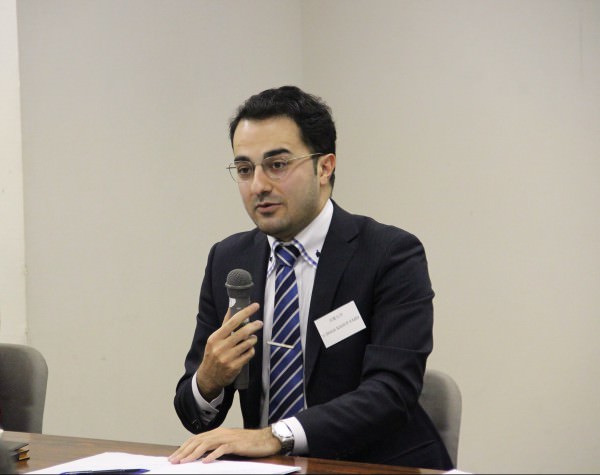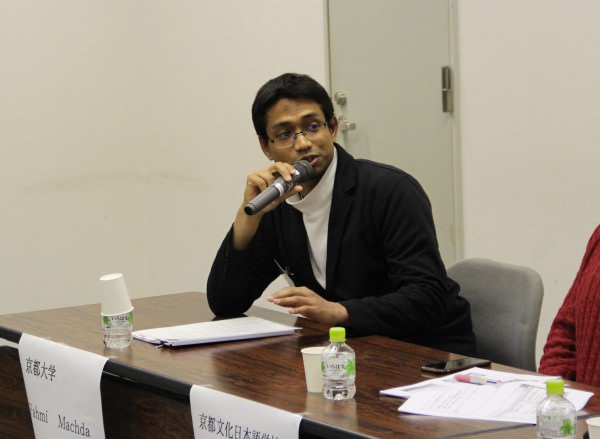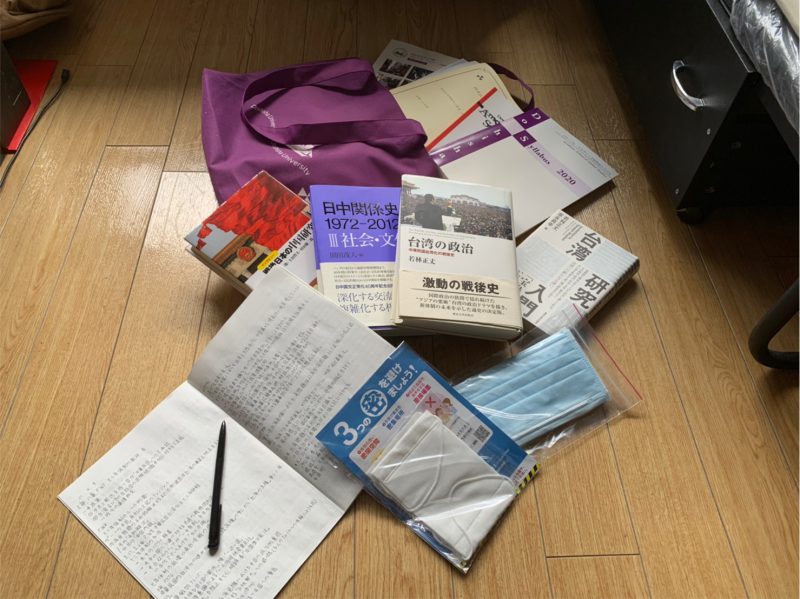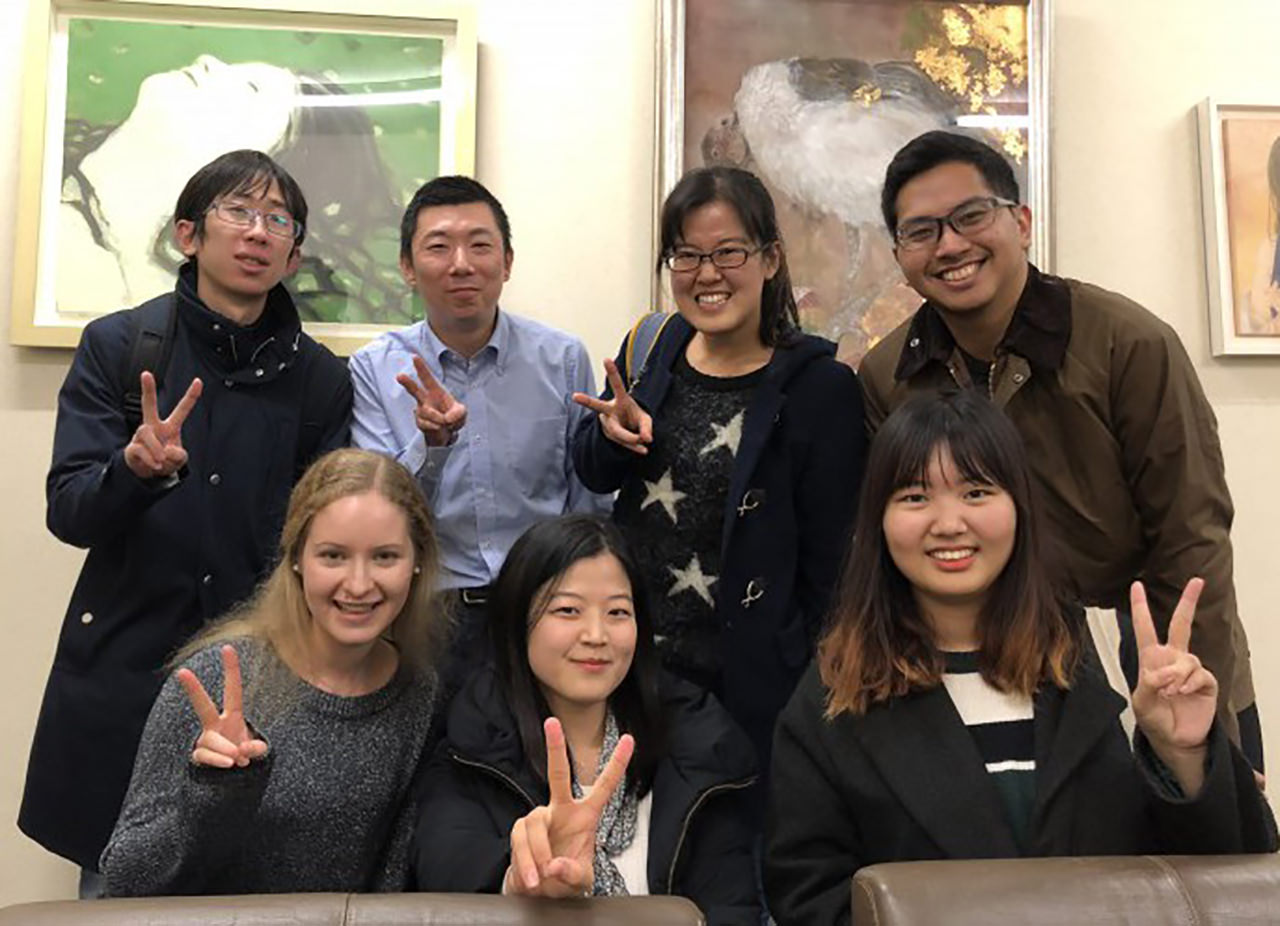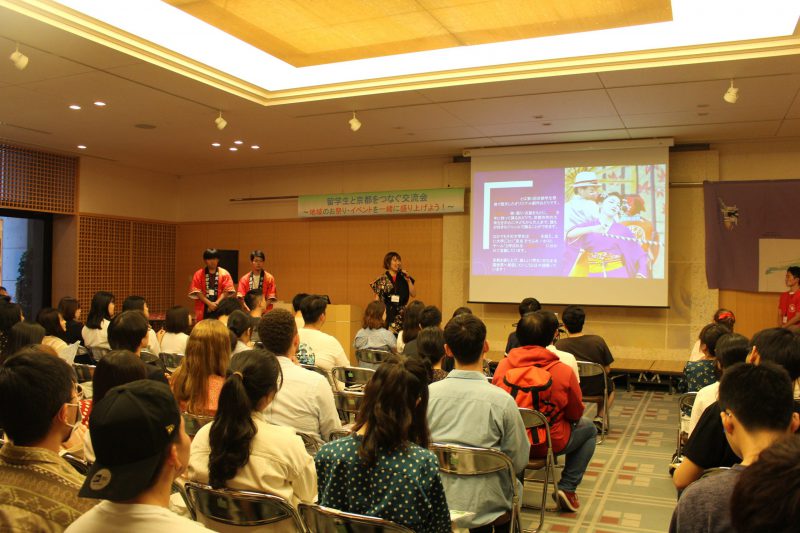Listening to the Voices of Muslim Students in Kyoto
2018.02.12
Day-to-day Needs
Q: Can you share your thoughts about living in Kyoto as a Muslim student? What are some difficulties you’ve had? Has anything been surprisingly easy?
Fahmi: “Shopping for Halal food is difficult. I can buy Halal food cheaply in Kyoto at bulk grocery stores, but there isn’t much variety. Also, there isn’t much time to pray at school. I attend classes at Kyoto University’s Yoshida Campus, which has two Muslim prayer spaces, so when I’m at school, I pray there. My professors are understanding about this, so when prayer time comes, I’m able to go and pray, even if I have class.
I’m supposed to pray five times a day, but that’s a bit difficult to do in Japan. There aren’t many options for times and places to do Friday prayers, but Kyoto does have a small mosque. Friday is a special day for Muslims, since there is a big prayer around lunch time. We as Muslims, especially the men, try our best to prioritize this prayer on Friday. Several times during my life in Japan, I had to choose not to join some events, such as a lab trip that was held on Friday. Actually, it was a hard decision, since I would like to travel and see more about Japan.”
Campuses offering prayer spaces like Kyoto University’s are becoming more common in Kyoto. The city also recognizes the need to continue to hear from students like today’s panelists, to understand the needs they may not be aware of.
S.D. is next to answer, and touches upon some of the challenges she faces while living abroad that are different from her male classmates.
S.D.: “Japanese food has a lot of pork in it. Sometimes I’ll want to eat a burger, but most of the burgers here are made with a mix of beef and pork, so I can’t eat most of them. It can be difficult when I go out to eat with friends, too. If most of the food has pork in it, I might end up just eating salad and French fries.
For prayer, it’s a little bit difficult for me to find prayer spaces just for women. I’m a bit shy, and I don’t really like praying front of other people, either, so I like to pray in private places, but I sometimes have difficulty finding private spots, too. A small space is fine, but I just want some privacy. I don’t have many options to pray at school, but when classes end at 12:30, I can go home right away to pray in my room.
As far as prayer, those are the only problems I have, really. When it comes to wearing hijab, though, I can’t wear it at my part-time job, because I don’t want customers to feel afraid. We [Indonesian Muslims] think of hijab mostly as a fashion item, just like a scarf you wear over your head. I just want people to know it’s not some sort of frightening thing, or a big advertisement I’m trying to send out.”
Though the first two panelists hail from Indonesia, the next student, Mahdi, comes from Iran, and was able to share a slightly difference perspective.
Mahdi: “I heard that Osaka Station recently installed a designated prayer space. Many people pass through the station, and I think that kind of facility is absolutely necessary.
When I started my studies in early 2011 at Doshisha University, a few appropriate places for practicing daily prayers were available. I remember that I had found some peaceful places at the nearby Kyoto Imperial Palace for daily prayers. At first, Japanese passerby would stare at me, wondering what I was doing. It didn’t bother me at all, though, because those Japanese people were very polite. I managed to find a prayer space at Doshisha campus afterward.
Another problem I often hear about from my friends is the toilet—especially traditional Japanese sunken toilets. In Japan, where washlets [equipped with bidets] are common, in many ways it’s easier than in a lot of Western countries, but there are still bathrooms on trains and in other places that don’t have washlets. The Islamic faith has particular rules regarding personal hygiene when going to the toilet. I won’t say too much more about it, but let me just say that some Japanese companies, like Toto, have got it right. (laughs)”
*According to some Islamic teachings, toilet paper alone is not sufficient: a person must cleanse their body with water. The modesty of many Muslim students abroad on this topic means that the issue is not often raised. This can be a difficult point to explain to people from another culture.
How students elsewhere view Kyoto
Q: How do students in your country feel about studying abroad in Japan? What are some of the needs of students in your countries?
Fahmi: “Many Indonesians go to study in England, because there are many scholarships to study there. Studying in Japan isn’t as popular with students in Indonesia. There are scholarships with Honda and Panasonic to study in Japan, but there are many more for studying in Europe.”
S.D.: “That’s right—many people want to go to England, or Europe. Scholarships are really important, but the applications for them can be difficult to put together. I think Japan is [a] popular [study abroad destination], though. Many people around me say they want to come to Japan. Recently, though, many of my friends have gotten into Korean dramas and pop music. Today’s high school students really like Korean pop stars, and are interested in going to Korea someday.”
Mahdi: “Japan and Korea are very far from the Middle East, but I’ve also noticed more Iranian students interested in Korea recently.
When I was in Iran, I wanted to study Japanese, but I couldn’t find any Japanese language schools. So I called up the Japanese embassy and said I wanted to learn. (laughs) They told me it was difficult, but if I could, to come to the embassy. I lived in Shiraz, in southern Iran, and I didn’t want to go all the way to Tehran, where the embassy was. So it’s a bit difficult to study Japanese in my country.
But there are still famous figures [connecting Iran and Japan], like Darvish, and other Japanese-Iranians, and anime is still very influential, I think, though it’s not on TV as much as it used to be. When I mention Japan to other people, though, they often say that they want to come here to study, too.
I think Japan needs to show the beauty of Japan, and the beauty of Kyoto to students who are in high school now.”
Find out more!
In a non-Islamic country like Japan, many of the religious and cultural needs of students like Fahmi, S.D., and Mahdi may be unfamiliar to their host schools. Schools like Kyoto University, Doshisha University, and Ritsumeikan University offer Halal food in their cafeterias, and others, like Kyoto University of Foreign Studies have designated prayer spaces, too. With events like today’s, Study Kyoto hopes to make the City of Kyoto and even more welcoming environment for Muslim international students to live and study.
To read more about Kyoto Mosque (Masijd Kyoto), prayer spaces across Kyoto, and Halal/Muslim-friendly restaurants, click here!
Click here to see a student-produced video about the life of a Muslim student in Kyoto!






